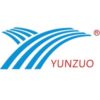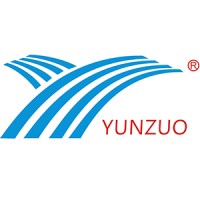The world of technology is continually evolving, and so are our connectivity needs. In this age of remote work, online collaboration, and multimedia entertainment, having a reliable docking station is no longer a luxury but a necessity. HDMI USB4.0 docking stations, with their versatile connectivity options and high-speed data transfer capabilities, have become the go-to solution for those seeking seamless linkages between devices. For entrepreneurs looking to tap into the thriving market for HDMI USB4.0 docking stations, this guide will take you through the journey of finding the right wholesale factory in this dynamic industry.
Understanding the Significance of HDMI USB4.0 Docking Stations
Before delving into the intricacies of finding a wholesale factory, let’s first understand why HDMI USB4.0 docking stations are in high demand.
Versatile Connectivity: HDMI USB4.0 docking stations offer a myriad of connectivity options, including HDMI, USB-C, USB-A, Ethernet, audio ports, and more. This versatility is crucial for individuals and businesses with diverse tech setups.
High-Speed Data Transfer: USB4.0, the latest generation of USB technology, provides lightning-fast data transfer speeds, making it ideal for professionals working with large files or individuals who demand speedy multimedia streaming.
Simplified Workflows: These docking stations simplify your workflow by allowing you to connect multiple devices like laptops, tablets, and smartphones to peripherals such as monitors, keyboards, and external drives with ease.
Remote Work and Entertainment: In the era of remote work and entertainment on demand, HDMI USB4.0 docking stations are instrumental in ensuring a smooth, uninterrupted experience.
Why Source from a Wholesale Factory?
Now that we understand the importance of HDMI USB4.0 docking stations, the next step is to determine why sourcing from a wholesale factory is the right choice.
Cost Efficiency: Wholesale factories offer economies of scale, allowing you to purchase products at lower costs per unit. This cost efficiency can significantly impact your profit margins.
Quality Assurance: Reputable wholesale factories prioritize quality control, ensuring that the products they manufacture meet or exceed industry standards. This commitment to quality is essential, especially in the electronics market.
Variety of Options: Wholesale factories often offer a wide variety of product options. You can choose from standard docking stations or even collaborate with manufacturers to develop custom solutions tailored to your market’s demands.
Consistency: Sourcing from a single wholesale factory ensures product consistency and reliability, helping you build a strong brand reputation based on product quality.
Expertise and Innovation: Wholesale factories are often at the forefront of technological advancements. They invest in research and development to provide cutting-edge products that align with market trends.
Step 1: Market Research
Your journey begins with comprehensive market research. To find the right wholesale factory, you must understand your target market, customer preferences, and industry trends.
- Identify Your Target Market: Determine whether your market is predominantly B2B (business-to-business) or B2C (business-to-consumer). This will influence your product specifications and marketing strategies.
- Customer Preferences: Study what features and connectivity options your potential customers are seeking in HDMI USB4.0 docking stations. Are they more interested in versatility, speed, or cost-efficiency?
- Industry Trends: Keep a close eye on the latest industry trends, including technological advancements, emerging competitors, and changing consumer behaviors.
Step 2: Legal and Regulatory Requirements
Navigating the legal and regulatory landscape is vital for a successful wholesale business. You must understand the import/export regulations, compliance considerations, and the necessary licenses, permits, and certifications required for handling electronics.
- Import/Export Regulations: Different countries have varying import/export regulations. Ensure you are aware of the specific requirements in your location and in the location of your wholesale factory.
- Compliance Standards: Electronics are subject to specific compliance standards. Familiarize yourself with these standards, which may include safety, electromagnetic compatibility, and environmental regulations.
- Licenses and Permits: Verify the licenses and permits needed to engage in the import and distribution of electronics in your region.
Step 3: Sourcing Reliable Suppliers
Sourcing reliable suppliers is the backbone of your wholesale business. Research, vetting, and establishing effective communication channels with manufacturers are key.
- Research Potential Suppliers: Start by researching potential suppliers. Online directories, trade shows, and industry forums are excellent resources for finding wholesale factories.
- Vet Credentials: Vet the credentials of your potential partners. Look for a proven track record of quality, reliability, and ethical business practices.
- Effective Communication: Effective communication with your suppliers is paramount. Ensure that language barriers, time zones, or cultural differences do not hinder your ability to convey expectations clearly.
Step 4: Negotiating Deals
Negotiating deals is more than just discussing prices. Consider other factors that can make or break your agreement with a wholesale factory.
- Minimum Order Quantities (MOQ): Be aware of the minimum order quantities (MOQ) required by the factory. Negotiate MOQs that align with your business’s capacity and financial capabilities.
- Win-Win Agreements: Aim for win-win agreements. These should benefit both you and your supplier, fostering a long-term, mutually beneficial partnership.
Step 5: Quality Assurance
In the electronics industry, quality assurance is non-negotiable. You must implement a rigorous quality control process to ensure that the products you receive meet the standards expected by your customers.
- Product Sampling: Inspect product samples carefully before placing bulk orders. This step is crucial to avoid receiving products that do not meet your expectations.
- Quality Control Measures: Develop and implement quality control measures throughout the manufacturing and shipping processes to maintain the consistency of your product’s quality.
Step 6: Logistics and Shipping
Logistics and shipping are critical aspects of your wholesale business. Making the right choices can significantly impact the efficiency and cost-effectiveness of your operations.
- Selecting a Freight Forwarder: Choose a reliable freight forwarder who can handle the logistics of shipping your products from the factory to your location.
- Transport Options: Consider different transport options, such as sea, air, rail, and road, based on your specific needs. Each mode has its advantages and cost considerations.
- Customs Clearance: Managing customs clearance can be complex, but it’s a vital part of the process. Understand the required documentation, customs duties, and import taxes for a seamless importing experience.
- Warehousing and Distribution: Efficient warehousing and distribution are essential. Ensure that your products are stored properly, and develop a distribution network to meet customer demands promptly.
Step 7: Cost Analysis
Understanding the costs involved is crucial for budgeting, pricing, and overall profitability. Break down the different costs, including production, shipping, import taxes, tariffs, and other fees.
- Production Costs: Analyze the production costs, including manufacturing, labor, and materials.
- Shipping Costs: Calculate the shipping costs, which vary based on the chosen transport mode.
- Import Taxes and Tariffs: Be aware of the import taxes and tariffs imposed by your country’s customs department.
- Other Fees: Consider other fees, such as customs brokerage fees, storage fees, and insurance costs.
Step 8: Overcoming Challenges
Importing electronics can come with its share of challenges. Being prepared to address these challenges is crucial to the success of your wholesale business.
In conclusion, embarking on the journey of finding the right wholesale factory for HDMI USB4.0 docking stations is a venture filled with potential and opportunities. These docking stations have become indispensable tools in the modern world, catering to the ever-growing demands of connectivity, remote work, and digital entertainment.
Sourcing from a wholesale factory offers an array of advantages, from cost-efficiency and product consistency to access to a wide range of options and cutting-edge technology. This comprehensive guide has taken you through the essential steps to navigate this industry successfully.
Market research is your foundation, providing insights into your target audience’s needs and preferences. Understanding legal and regulatory requirements ensures your compliance and smooth operations. Sourcing reliable suppliers, negotiating win-win deals, and maintaining stringent quality control are essential for delivering top-notch products to your customers.
The logistics and shipping process is a critical part of your operation, and understanding the costs involved is vital for maintaining profitability. Challenges may arise, but with proper planning and strategies in place, you can overcome language barriers, safeguard intellectual property, navigate cultural differences, and address disputes effectively.
As you explore the world of HDMI USB4.0 docking stations and connect with wholesale factories, remember that this is a dynamic and evolving industry. Staying informed about the latest technological advancements and consumer trends will keep your business competitive.
This journey is one filled with potential, but it’s essential to approach it with dedication, diligence, and a commitment to providing high-quality products to your customers. With the right wholesale factory and the knowledge gained from this guide, you’re well-prepared to unlock the opportunities and success that await in the HDMI USB4.0 docking station market.




